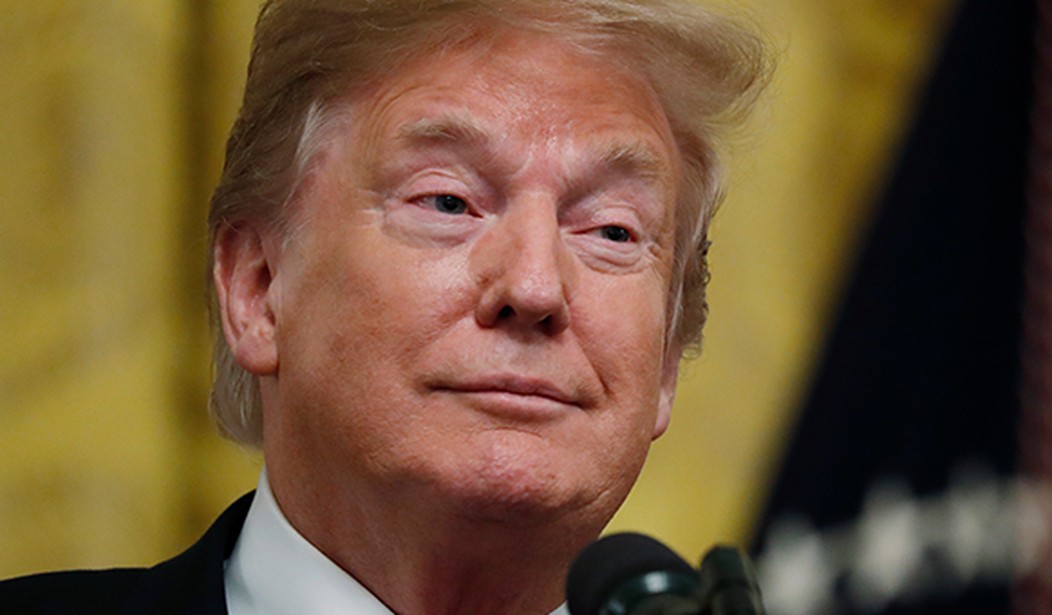Last Sunday afternoon, U.S. Attorney General William Barr released a letter, which he said summarized the report he had received from special counsel Robert Mueller about alleged crimes committed by President Donald Trump. Barr wrote that the president's exoneration is complete with respect to any conspiracy between the Trump campaign and Russian intelligence to affect the outcome of the 2016 presidential election. He also wrote that though Trump will not be prosecuted by the Department of Justice for obstruction of justice, the special counsel did not exonerate him.
This is a head-scratcher.
The head-scratcher is why Barr revealed any ambivalence on the part of anyone in the DOJ on the issue of obstruction of justice when he needn't have. As well, under the Federal Rules of Criminal Procedure, he shouldn't have. Those rules, which prohibit the revelation of evidence for and against prosecution of people not actually prosecuted, also prohibit the revelation of the existence of such evidence, as well as any disagreements among prosecutors over the legal significance of the evidence.
The Barr revelation constitutes the same violation of federal rules and DOJ policy that FBI Director James Comey committed when he announced in the summer of 2016 that Hillary Clinton would not be prosecuted for using private email servers to communicate about classified materials and then revealed that the FBI had convincing evidence against her and then revealed what that evidence was.
When the president learned of the Barr summary of the Mueller report, he naturally rejoiced, and then he thoughtlessly asked for the full Mueller report to be made public. That was a mistake.
Here is the back story.
Barr's four-page summary of Mueller's 700-page report claims to have characterized fairly Mueller's principal conclusions. Yet a careful reading between the lines of those four pages reveals lawyerly language that the president does not want to hear analyzed. Though the president will not be charged with conspiracy to receive something of value from the Russians in order to affect the outcome of a political campaign (a felony), Mueller clearly found some evidence of a conspiracy between the Trump campaign and Russian intelligence (probably the 100-plus communications, some in person, between them), but not enough evidence "to establish" the conspiracy -- that is, not enough evidence to prove the existence of the conspiracy beyond a reasonable doubt.
Recommended
We know Mueller found some evidence of such a conspiracy because if he failed to find any evidence, Barr would have said so. He didn't.
The second conclusion related by Barr is that Mueller found the evidence against Trump of obstruction of justice (interfering, or attempting to interfere, with an FBI investigation for a self-serving purpose) to be equivocal. That means Mueller found there is evidence that the president obstructed or attempted to obstruct justice and there is equally as strong exculpatory evidence or public policy or credibility reasons for not prosecuting, as well.
Both of these conclusions were made known to Barr three weeks ago, but he revealed them last Sunday.
Why would Mueller punt on the obstruction charge? It is not uncommon for prosecutors to view the same facts and the same law and come to different conclusions about whether a crime can be proven beyond a reasonable doubt. In the conspiracy charge, Mueller concluded he could not prove the case beyond a reasonable doubt. On the obstruction charge, he allowed his boss, Barr, to make the decision about whether to prosecute the president. Such a "kicking the case upstairs" is not uncommon in high-profile cases.
Why Barr revealed all this is a mystery, as it will beat the drum for the release of Mueller's full report and perhaps the evidence on which that report is based so that members of Congress who want to second-guess Mueller or examine for themselves what evidence of conspiracy and obstruction he found may do so.
What's next? The Barr letter is a summary of the Mueller report. The Mueller report is itself a summary of the millions of pages of raw evidence Mueller and his team accumulated. That raw evidence consists of grand jury transcripts; FBI notes of interrogations of witnesses; transcripts of wiretaps, emails and text messages; prosecutors' impressions of the quality of their evidence; and more than 1 million pages of campaign and White House documents voluntarily surrendered to Mueller.
If the 700-page summary of the evidence or the trove of raw evidence on which the summary is based are revealed, there will be much in there for Trump's adversaries to feast upon. It's a mistake for the president to call for the revelation of anything that he or his lawyers have not seen.
While the political focus shifts to the House Democrats, the legal focus shifts to Manhattan, where federal prosecutors have an ongoing investigation of the president for election finance fraud. And they have a finding by a federal judge that the criminal conspiracy to evade election finance reporting -- to which Michael Cohen pleaded guilty and for which the owner of the National Enquirer received a deal -- was orchestrated by the president himself.
Also in Manhattan labors Cy Vance, the Manhattan district attorney. He is investigating allegations of pre-presidential bank and tax fraud against Trump. He can go back to behavior that occurred 10 years ago. He also has a state statute that makes New York the easiest state in the union in which to prosecute financial crimes.
And the Senate Republicans now want to investigate who in the FBI or the CIA abused their legal authority and started all this. But the intelligence community will do its best to stifle them, just as that community stifled Trump from revealing what materials were seen by the secret Foreign Intelligence Surveillance Court. That is another can of worms the contents of which Trump should not want to be seen.

























Join the conversation as a VIP Member